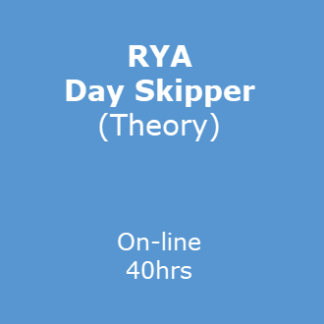This course provides the fundamental navigational knowledge required to undertake the RYA Day Skipper Practical Course. This is a comprehensive introduction to navigation and equips you with enough knowledge to navigate around familiar waters by day and a basic knowledge of lights is also included to introduce you to night cruising.
Along with the course pack your get access to an advanced electronic chart plotter specifically for use on training courses, giving you a realistic insight into electronic navigation which is an integral part of the course.
The course is delivered by Navathome, a RYA Recognised Training Centre specialising in online training. To get a feel for the course click here for a free trial. You will be supported by our training centre qualified instructors on behalf of Navathome.com. To complete the course there are two exam papers that can be invigilated by a suitably qualified person or ASIA Pacific Yachting if the qualification is to be used commercially, otherwise the papers are done without invigilation and online.
The course is made available for a 6 month period. Should you need to extend this for a subsequent 6 month period an administrative fee will be levied (see T&Cs for details).
| Pre-course Practical Requirements: | Some basic navigational knowledge. |
| Pre-course Theory Requirements: | None. |
| Course duration: | 40 hrs (will depend on an individual’s ability) |
| Minimum age: | 16 |
| What’s Included: | Chart Plotter, Dividers, Charts, RYA Day Skipper theory course notes book and Training Almanac |
| Cost: | HKD 4,000 (6 months course access) which includes postage of the training pack to any location. Course 6 month extension HKD300. |
| Exam: | At the end of the course you take an on-line exam to complete the course. |
| Award: | RYA Day Skipper Theory Certificate |
Delivered via an on-line web based training course for you to complete at your own speed.
Support is provided by your assigned instructor.
The course is made available for 6 months. Should you wish to extend that period there is a service charge (see T&Cs for detials)
You will require the following equipment:
- Access to a computer or tablet device with internet connection.
This is a comprehensive introduction to chartwork, navigation, meteorology and the basics of seamanship for Competent Crew. You will find this course invaluable if you want to learn how to start making decisions on board.
Nautical Terms
- Parts of a boat and hull.
- General nautical terminology.
Ropework
- Knowledge of the properties of synthetic ropes in common use.
Anchorwork
- Characteristics of different types of anchor.
- Considerations to be taken into account when anchoring.
Safety
- Knowledge of the safety equipment to be carried, its stowage and use (see RYA Boat Safety Handbook, C8).
- Fire precautions and fire fighting.
- Use of personal safety equipment, harnesses and lifejackets.
- Ability to send a distress signal by VHF radiotelephone.
- Basic knowledge of rescue procedures including helicopter rescue.
IRPCS
- Steering and sailing rules (5,7,8,9,10 and 12-19).
- General rules (all other rules).
Definition of position, course and speed
- Latitude and longitude.
- Knowledge of standard navigational terms.
- True bearings and courses.
- The knot.
Navigational charts and publications
- Information shown on charts, chart symbols and representations of direction and distance.
- Navigational publications in common use.
- Chart corrections.
Navigation drawing instruments
- Use of parallel rulers, dividers and proprietary plotting instruments.
Compass
- Application of variation.
- Awareness of deviation and its causes.
- Use of a hand-bearing compass.
Chartwork
- Dead reckoning and estimated position including an awareness of leeway.
- Techniques of visual fixing.
- Satellite-derived positions.
- Use of waypoints to fix position.
- Course to steer.
Tides and tidal streams
- Tidal definitions, levels and datum.
- Tide tables.
- Use of Admiralty method of determining tidal height at standard port and awareness of corrections for secondary ports.
- Use of tidal diamonds and tidal stream atlases for chartwork.
Visual aids to navigation
- Lighthouse and beacons, light characteristics.
Meteorology
- Sources of broadcast meteorological information.
- Knowledge of terms used in shipping forecasts, including the Beaufort scale, and their significance to small craft.
- Basic knowledge of highs, lows and fronts.
Passage planning
- Preparation of navigational plan for short coastal passages.
- Meteorological considerations in planning short coastal passages.
- Use of waypoints on passage.
- Importance of confirmation of position by an independent source.
- Keeping a navigational record.
Navigation in restricted visibility
- Precautions to be taken in, and limitations imposed by fog.
Pilotage
- Use of transits, leading lines and clearing lines.
- IALA system of buoyage for Region A.
- Use of sailing directions.
- Pilotage plans and harbour entry.
Marine environment
- Responsibility for avoiding pollution and protecting the marine environment.
The RYA Day Skipper Practical course then RYA Coastal Skipper/YachtmasterTM Theory course. Also consider joining a course under the Experience & Mile Building programme to gain valuable experience before your next formal course.
Booking
Click the course below to access the booking page.
This course is available all year.

